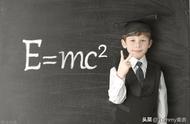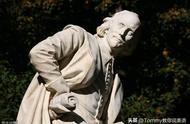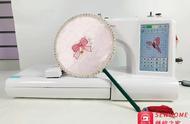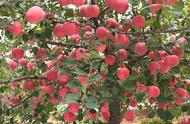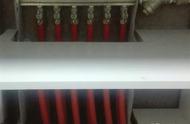
一. advise/persuade/suggest的用法区别
1. suggest
① 当"建议"解,可接名词、动名词和宾语从句,不能接不定式。
May I suggest going (to go 误) there by train?
我建议坐火车去那里如何?
② suggest还可接句型“to sb. 从句”。
I suggested to him that John (should) be fired.
我向他建议把约翰开除。
2. advice / advise
作"劝告,忠告"解,有下列四种用法:
advise sth.或doing sth.
advise sb. (not) to do sth.
advise sb. against sth.或doing sth.
advise(sb.) that sb.(should) do sth.
She advised prudence.
她劝告(我们)应谨慎从事。
He advised waiting till the proper time.
他劝告(我们)等到适当时机才行动。
I advised him (not) to do it now.
我劝他现在(不要)做此事。
I advised him against doing it now.
我劝他不要现在做此事。
I advised (him) that he (should) do it now.
我劝他现在就做此事。
advise后面加sb. (not) to do...,而suggest后面必须加sb.(或者sb.'s)doing...,当然两者都可以接宾语从句,注意宾语从句的动词形式必须是(should) (not) do...。如下面三个句子:
a.I advise my father to stop smoking.
b.I suggest my father( father's) stopping smoking.
c.I advise/suggest (that) my father (should) stop smoking.
3. persuade
后面接sb. to do...,它的特别之处是它表示结果,不表示动作,是"成功地劝说,说服"的意思。
I advise my father to stop smoking but I can't persuade him to.
我劝说我父亲戒烟,但是我没能说服成功。
此外advise与persuade之间可以转换,try to persuade=advise, manage to advise=persuade。

二. every和each的用法区别
1. each可作代词和形容词,而every只能用作形容词。如可以说each of these dictionaries或each one of these dictionaries, 但不能说every of these dictionaries, 该用every one of these dictionaries.
2. each可指两个或两个以上中间的每一个,而every只可指三个或三个以上中间的每一个,不能指两个中每一个.如:
可以说each of my eyes, 不可说every one of my eye,但可说every one of my toes(脚趾) .
3. each通常用来指若干固定数目中的每一个,而every往往指“任何一个”,如:
Each girl sitting over there is my student.
坐在那里的每一女孩子都是我的学生。
Every man must do his best.
人人都尽最大的努力。
4. every和not连用,即“every…not”或“not…every”构成部分否定,表示“并非每一个”的意思,each则无此结构.
5. every 基数词 复数名词=every 序数词 单数名词,作“每(多少)”解,但each不能用于这一结构中. 如: every three days 每三天或每隔两天,相当于 every third day.
6. every two days, every second day都作“每隔一天”解,但在实际应用中人们都用every other day来表示这一意思,every two days也有人讲,而every second day则用的很少。
7. 也可以说every few days, 相当于汉语的“隔些日子”.
8. each 可以与other构成固定的搭配,即each other意思为“彼此、相互、互相”的意思,而every则不能.
三. poem与poetry的用法区别
1. poem的意思是“诗”,为可数名词,可指具体的一首诗、两首诗、几首诗等;用作主语时,谓语动词的数取决于poem的数(即poem为单数,谓语动词用单数;poem为复数,谓语动词用复数)。poet 诗人。如:
This poem is worth learning by heart.
这首诗是值得背诵的。
His poems have been compared to those of the English Romantics.
他的诗歌被拿来与英国浪漫主义诗歌相提并论。
2. poetry的意思也是“诗”,但为诗的总称,是不可数名词;用作主语时,谓语动词总是用单数。如:
This writer’s poetry reflects his love of nature.
该作者的诗反映出他热爱自然。
Poetry has been composed since ancient times.
从古时起人们就开始创作诗歌了。
Poetry serves to stimulate the mind.
诗歌能激发心灵。
四. attend / join / take part in 的用法区别
1. attend 指参加会议、婚礼、葬礼、典礼;去上课,上学,听报告等;句子的主语只是去听,去看,自己不定起积极作用。如:
He will attened an important meeting tomorrow.
他明天会出席一个很重要的会议。
2. join 指加入一某个党派,团体组织等,成为其中其成员之一,意为“参军、入团、入党”等。
和某人一起做某事,其结构为:join sb in (doing)sth 根据上下文,in (doing)sth 也可以省去。
She joined the Young Pioneers.
她加入了少先队员。
Will you join us in the discussion ?
你会加入我们的讨论吗?
3. take part in 指积极参加会议或群众性活动等,着重说明句子主语参加该项活动并在活动中发挥作用。
We often take part in physical labour.
我们经常参加体力劳动。
五. beautiful, pretty, good-looking, handsome的用法区别
1. beautiful
beautiful 表示“美”,可用于人或事物。用于人时,通常只用于形容女性或小孩,一般不用于男性。它表示的“美”主要指能“给感官以极大的快乐(giving great pleasure to the senses)”,它侧重从客观上表明一种接近理想状态的美,语气很强。如:
It’s a beautiful village.
那是个美丽的村庄。
She is a beautiful girl.
她是个美丽的女孩。
The film star is really beautiful.
这位电影明星的确很美。
2. pretty
pretty 主要表示“漂亮”、“俊俏”、“标致”等义,可用于人(主要是女性和小孩)或事物,语气比 beautiful 弱。它往往侧重从主观上评述某人或某物,含有“可爱”或“讨人喜欢”之意。如:
What a pretty dress!
多漂亮的连衣裙啊!
They have a pretty daughter.
他们有个漂亮的女儿。
She is not really beautiful, but she looks pretty when she smiles.
她其实长得并不美,但笑起来很好看。
注:偶尔用于男性,但通常带有贬义。
3. good-looking
good-looking 意为“好看的”,主要用于人(男人、女人或小孩),不常用于事物。如:
He (She) is good-looking.
他(她)长得很帅(漂亮)。
有时用于事物,但不多见。如:
He has a good-looking car (horse).
他有一辆(匹)好看的汽车(马)。
4. handsome
handsome 意为“英俊的”,主要用于男性,但有时也用于女性(一般只用于成年女性,不用于少女),意为“体态健美的”、“端庄稳重的”。如:
He is a handsome young man.
他是一个英俊的年轻人。
Do you discribe her as beautiful or handsome?
你是说她貌美还是说她健美?
有时可用于事物,但不多见。如:
It’s a handsome building.
那是栋漂亮的建筑。

六. repair, mend 与 fix 的用法区别
三个词都可以译为“修理”,但fix一词在美语中应用更为广泛。
1. repair的对象范围很广。常指大件或构造较复杂的事物,如钟表、收音机、汽车和机床等大型物体。或用于修筑堤坝、道路和建筑等。
I have to have my watch repaired.
我的表该修理了。
repair a road/ bridge
修理公路/桥梁
2. mend一般用于“修补”破损的东西,如衣服、鞋袜、伞和桌椅等整体物体上的裂缝、破洞。
Will you please mend the sleeve of my blouse?
请你把我衬衣的袖子补一下好吗?
3. fix一般用于“修理”构造较复杂的事物,如钟表、收音机、机器等。侧重于“安装”、“调整”。常用于美国口语中。
The workers are fixing the machine.
工人们在安装机器。
Have you had your watch fixed?
你已找人修你的表了吗?
七. genius / gift / talent 的用法区别
三个词都有“天赋,才能”之意。
1. genius 程度最高,指“最全面的天赋” 也指“有天赋的人”。
Li Bai was a great genius.
李白是一个伟大的天才。
2. gift 侧重“天赋”
He has a gift for music.
他有音乐天赋。
3. talent n.才能,有才能的人
have a talent for 有...…的才能
talented adj. 有才能的
My sister has a talent for music.
我的姐姐有音乐天赋。
八. at last,finally与in the end的用法区别
1. finally可以放在句首,也可放在动词前。有两个用法:一是在列举事物或论点时,用来引出最后一项内容;二是用在句中动词前面,表示“等了好久才…”。如:
She put some soil in the box, then sowed the seed carefully, and then covered it with more soil.Finally she kept the box in the shade.
她在盒子里放些土,然后仔细地播种,之后再盖上一些土,最后她把盒子放在阴凉处。
We waited and waited, and the train finally arrived.
我们等了又等,火车终于来了。
Finally I’d like to thank you all for your coming .
最后我要感谢诸位的光临。(不能用at last)
Finally we finished the work. = We finally finished the work.
最后我们完成了这项工作。
2. in the end放在句首或句末,表示“经过许多变化、困难或捉摸不定的情况之后,某事才发生”,有时可与finally互相换用,其反义词是in the beginning,但in the end不能置于动词前。如:
We found that small village in the end.
我们终于找到了那个小村庄。
He tried several times,and in the end he succeeded.
他尝试过多次,最后成功了。
3. at last指经过,周折,等待,耽搁后的“最后,终于”得到所期待的结果,常常带有较浓厚的感情色彩。at last也可用来表示“等候或耽误了很多时间之后才……”,语气比较强烈。如:
At last , he passed the exam .
最后他终于通过了考试。
At last the work was done and he could rest.
最后工作完成了,他可以休息了。
She has come at last!
她总算来了。
He worked harder than before, and he passed the English examination at last.
他比以前学习更加努力,终于通过了英语考试。

九. laugh,laughing与laughter的用法区别
三者用作名词时,均表示“笑”,但有区别:
1. laugh 侧重指行为,是可数名词。如:
He answered with a laugh.
他笑着回答。
2. laughing侧重指笑的动作,是不可数名词。如:
He held his laughing.
他忍住了笑。
3. laughter 具有抽象或概括意义,是不可数名词 。如:
In this case there is no cause for laughter.
这没什么好笑的。
The room was full of laughter and happiness.
房间里充满了欢声笑语。

十. litter 和rubbish的用法区别
litter 和 rubbish 都可指“垃圾”,用作不可数名词。
rubbish 指“没用的东西(被扔或将要丢弃的无用的东西)”不可回收。
litter 指“(室内或公共场所)乱扔的废物(纸屑、不要的包装纸、废瓶等)”还可回收。
Throw the rubbish out.
把垃圾扔出去。
Pick up your litter after a picnic.
野餐后将废弃物收拾好。



